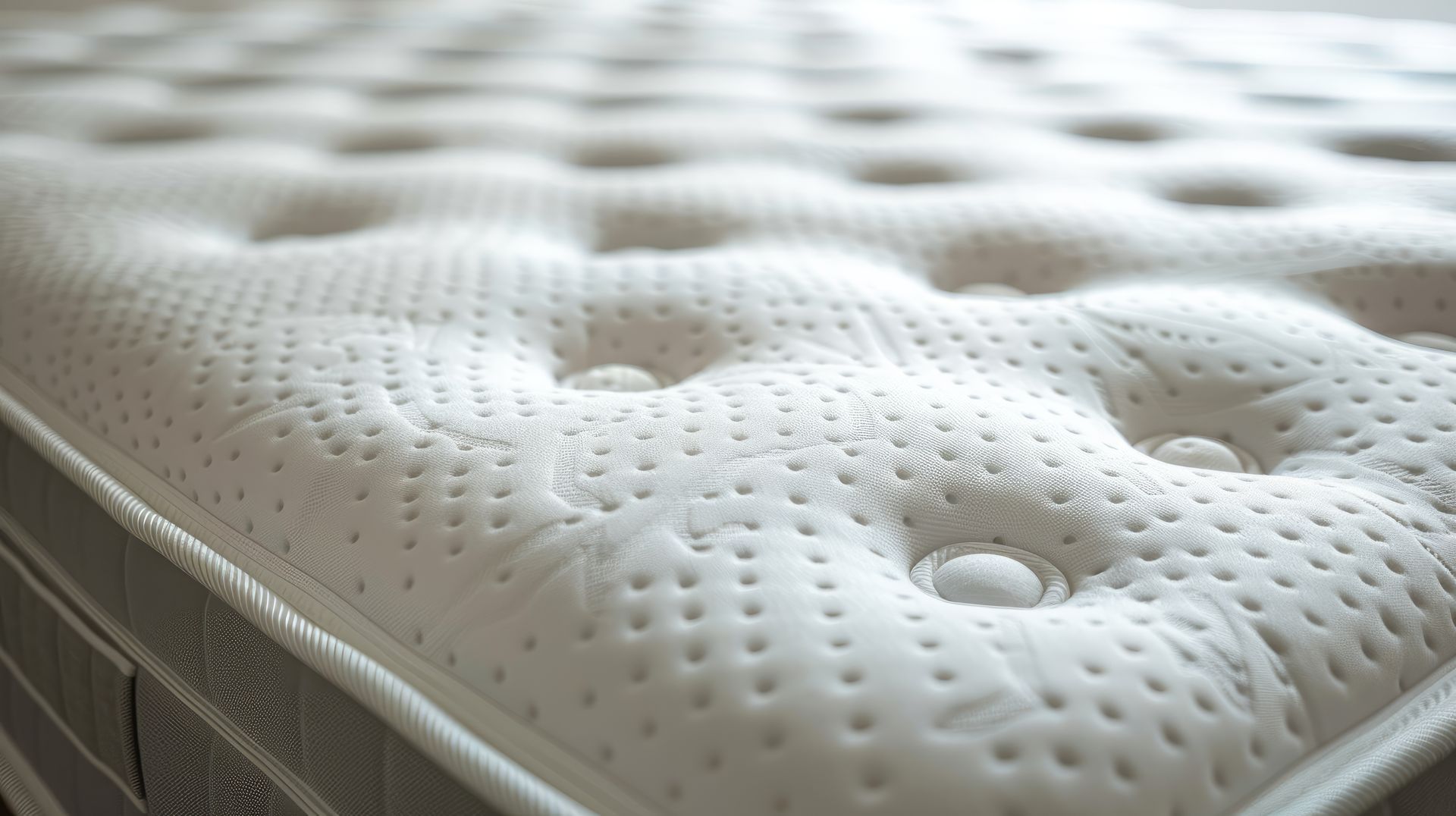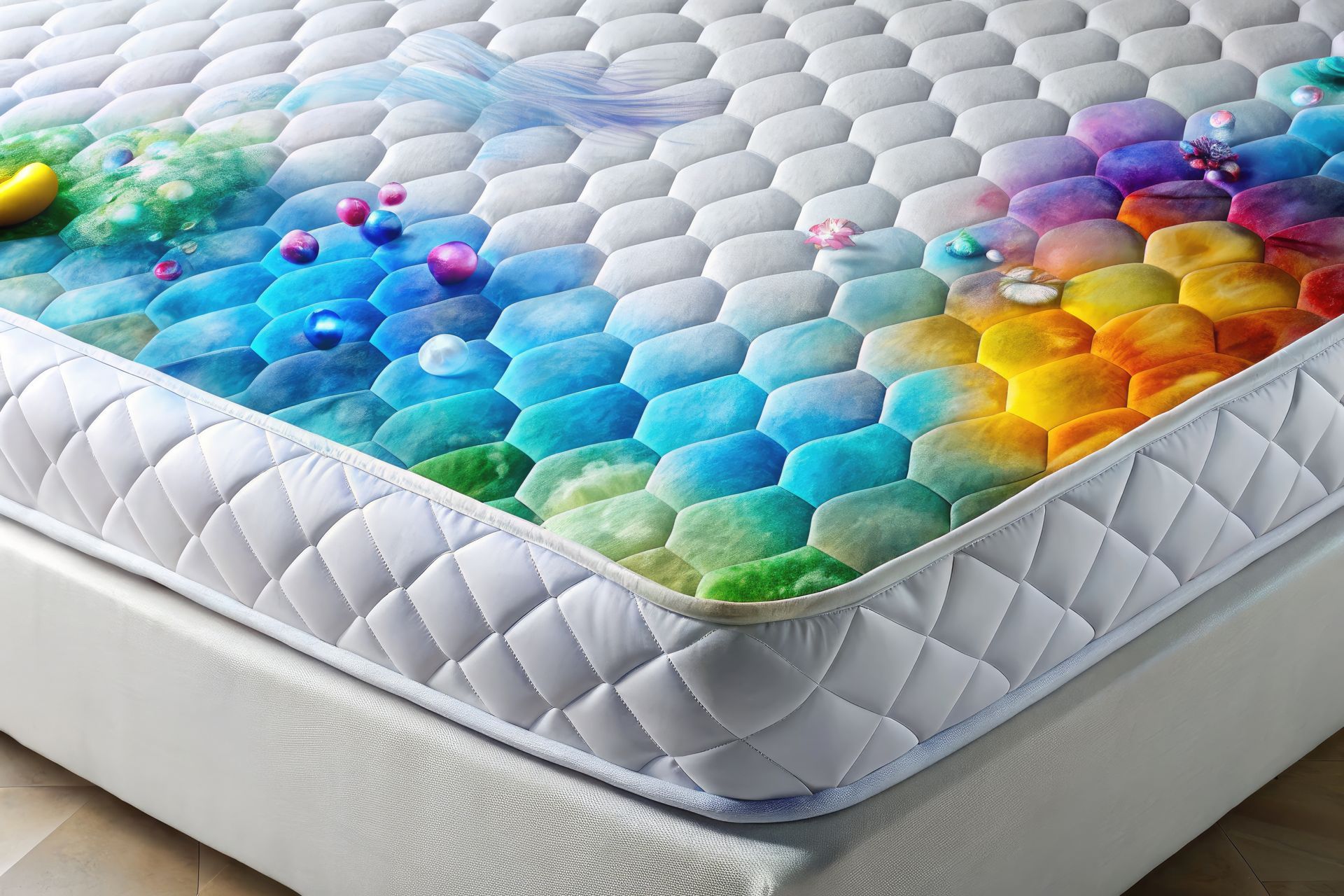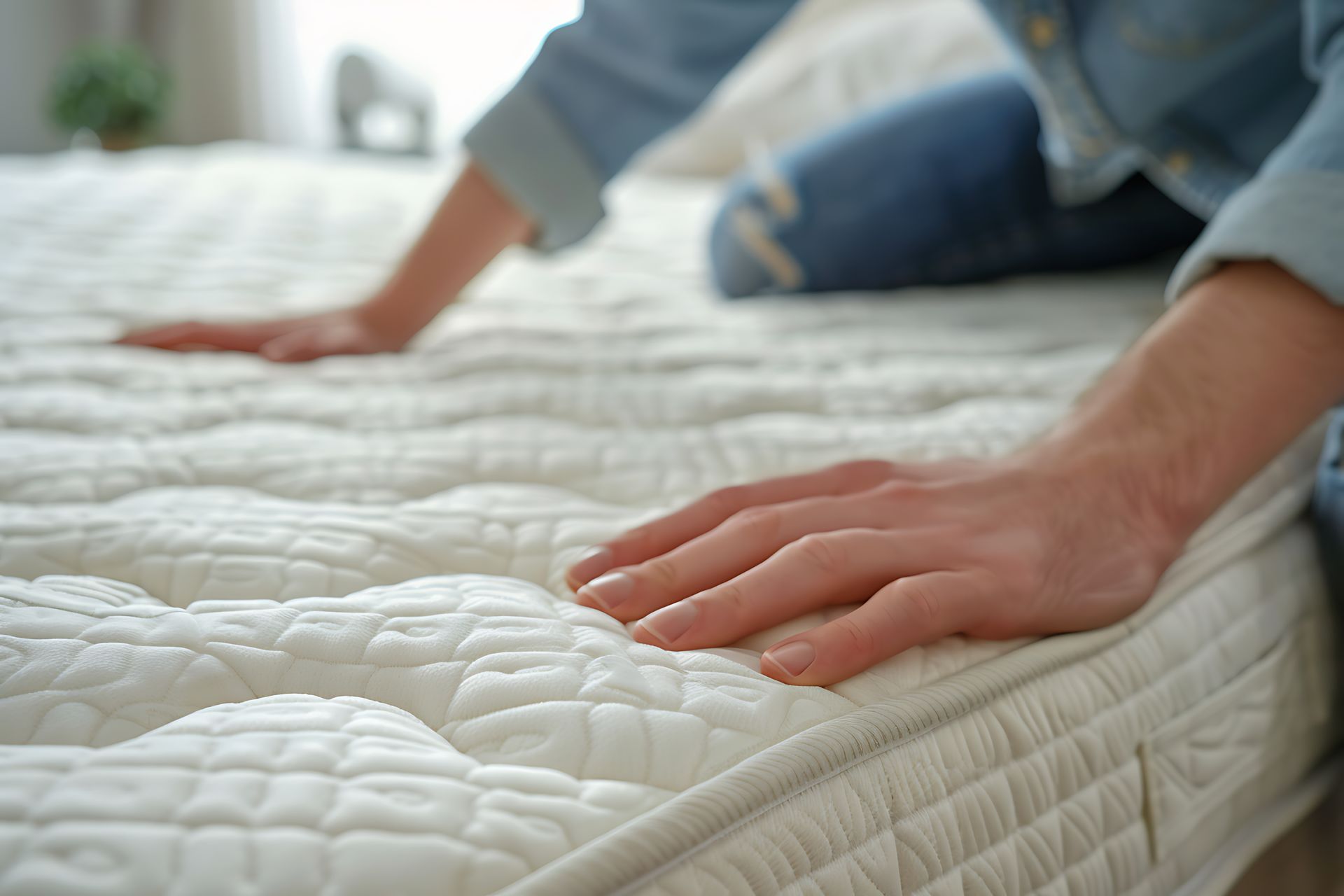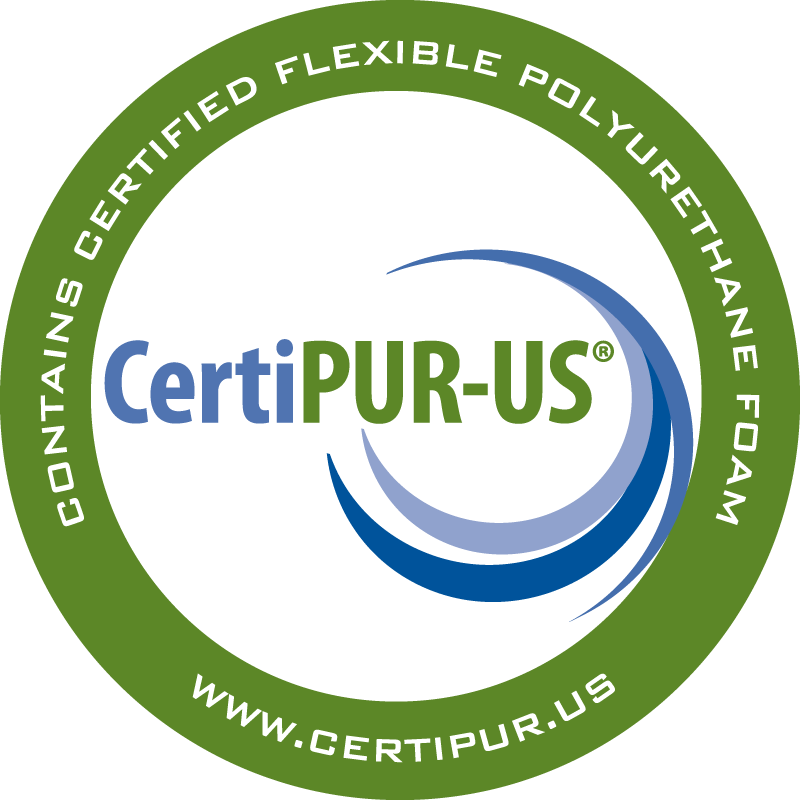
When shopping for a mattress, you may come across terms like “organic” and “synthetic,” which can cause confusion for consumers trying to choose the best option for their needs.
Though the average sleeper may not notice a significant difference in feel between organic and synthetic mattress materials, there are important distinctions in terms of materials, health benefits and environmental impact.
What Are Organic Mattresses?
An organic mattress is typically made from natural materials such as organic cotton, wool and natural latex. These mattresses are free from harmful chemicals, flame retardants and other synthetic additives. Organic materials must meet specific certification standards, such as the Global Organic Textile Standard (GOTS) or the Global Organic Latex Standard (GOLS), to be labeled "organic."
Key Materials Used in Organic Mattresses
- Organic Cotton: Often used for the mattress cover, organic cotton is breathable, hypoallergenic and produced without harmful pesticides.
- Organic Wool: Wool naturally regulates temperature and provides flame-resistant properties without the need for chemical flame retardants.
- Natural Latex: Sourced from the sap of rubber trees, natural latex is durable, biodegradable and naturally resistant to mold and dust mites.
What Are Synthetic Mattresses?
Synthetic mattresses, on the other hand, are made from man-made materials such as memory foam, synthetic latex or polyurethane foams. These mattresses often contain chemical additives for durability, flame resistance and increased comfort. Synthetic mattresses are typically more affordable and widely available than organic alternatives.
Common Synthetic Mattress Materials
- Memory Foam: Known for its pressure-relieving properties, memory foam is made from polyurethane and other chemicals. It contours to the body, but it tends to trap heat, making it less breathable than organic materials.
- Synthetic Latex: Made from petrochemical-based compounds, synthetic latex mimics the elasticity and responsiveness of natural latex but at a lower cost.
Key Differences Between Organic and Synthetic Mattresses
Material Composition
- Organic Mattresses are made from natural materials like latex, cotton and wool, while synthetic mattresses consist of artificial materials like memory foam or polyurethane foam.
- Organic materials are free from harmful chemicals, while synthetic mattresses may contain volatile organic compounds (VOCs), which can off-gas and cause respiratory issues for some individuals. The risks posed by synthetic materials can vary widely between material types. Some, like memory foam, are particularly notorious for their VOCs due to the high percentage of additives.
Environmental Impact
- Organic mattresses are eco-friendly as they use sustainable and renewable resources. The manufacturing process may have a smaller carbon footprint. These mattresses are more biodegradable at the end of their lifecycle.
- Synthetic mattresses, particularly those made from petroleum-based products, have a higher environmental impact and are not biodegradable. The production of synthetic materials often involves chemical processes that can release harmful emissions.
Health and Allergies
- For
individuals with sensitive skin, allergies or respiratory issues, organic mattresses may be the better choice. The lack of chemicals and flame retardants reduces the risk of irritation or allergic reactions. Natural latex is also naturally hypoallergenic and resistant to dust mites, mold and bacteria.
- Some sleepers may experience negative reactions to synthetic materials, particularly memory foam, due to the off-gassing of chemicals. Off-gassing refers to the release of volatile organic compounds (VOCs), which can contribute to indoor air pollution and cause headaches, dizziness, or respiratory discomfort for some.
Durability and Longevity
- Organic latex mattresses
are highly durable and can last for 15 to 20 years or more. Wool and cotton layers also maintain their integrity for a long time.
- Synthetic mattresses, especially memory foam, typically have a shorter lifespan of seven to 10 years. Over time, memory foam can lose its elasticity and begin to sag.
Why Synthetic Latex is Still Better Than Memory Foam
Although not entirely organic, latex mattresses often contain some organic material in addition to synthetic latex. Memory foam mattresses are 100 percent synthetic. Memory foam also contains a high percentage of chemicals to enhance its elasticity, some of which pollute indoor air with VOCs.
Synthetic blend latex mattresses do break down more quickly than memory foam once disposed of and release fewer pollutants over time. Memory foam mattresses tend to lose their elasticity more rapidly. They become indented and don’t bounce back in the morning, compromising their sleep comfort.
Ultimately, memory foam mattresses need to be replaced more frequently than latex, meaning more of them end up in landfills.
Choosing Between Organic and Synthetic Mattresses
For the average sleeper, the difference in comfort between an organic and synthetic mattress will not be noticeable, but the material composition, environmental impact and potential health benefits are key factors to consider.
Mattresses that incorporate organic materials offer an eco-friendly option that’s particularly beneficial for allergy sufferers or those with sensitive skin. They are also long-lasting, making them a worthwhile investment.
Need Help Deciding on the Right Mattress for Your Needs?
If you need help deciding on the right mattress for your needs, our mattress specialists at Twilight Bedding in Spokane, WA are here for you.
Contact us here on our website for more information or give our North Spokane Showroom a call at (509) 413-2431 or our Spokane Valley Showroom at (509) 926-2333.






